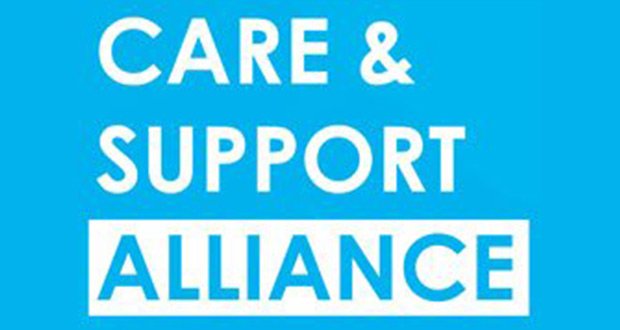Social Workers Reveal The Extent Of Social Care Meltdown
 The findings of a new survey of social workers by Community Care Magazine, supported by the Care and Support Alliance, provide shocking evidence of just how threadbare the social care safety net in England has become.
The findings of a new survey of social workers by Community Care Magazine, supported by the Care and Support Alliance, provide shocking evidence of just how threadbare the social care safety net in England has become.
The survey gives a unique insight into how many social workers feel about the frustrations of their day to day work as they ‘tell it how it is’.
There were 469 responses from social workers to the online survey, from every region of England, and their comments reveal the incredibly difficult position they are often in as they strive to support people in desperate need without enough cash in the system. For example:
- “[There is] strong pressure from my line manager and commissioners to reduce costs as a main priority.”
- “Colleagues constantly battle to keep packages at an adequate level to support clients/assist to keep them safe.”
- “Care packages are not getting agreed by the funding panel. I am having to submit reduced care packages to the panel in the hope that some support will get funded, as opposed to none.”
- “I cannot get new packages of care agreed or increases agreed when needs have increased.”
These comments need to be seen against a context in which nearly 7 in 10 68%(1) respondents to the survey said they felt expected to reduce care packages because of cost pressures in their local authority; more than 1 in 3 (37%) said they believed they couldn’t get people the care they needed; and, chillingly, more than 1 in 4 (28%) were not confident that the reduced care packages they had to administer were ‘fair and safe’. In addition, 4 in 5 respondents (81%) said family and friends are being expected to provide more support to ‘fill in’ where care has been reduced.
In the survey the reason given most often by social workers for having reduced a person’s care package was because their needs had changed. However, far more worryingly this was followed by budget pressures and because local authority support is now more restricted. The examples some respondents gave describing the plight of older people and disabled and mentally ill adults whose social care and support is being restricted or removed because of lack of resources were profoundly concerning.
The survey also found that support to get out and take part in social and leisure activities was the type of help which was most commonly being reduced (72%), followed by help with domestic tasks such as food shopping and cleaning (67%).
In addition, more than 4 in 5 respondents (83%) did not think there was enough variety and quality of social care provision in their area for people to exercise genuine choice and control over the care they received.
Caroline Abrahams, Charity Director at Age UK and co-Chair of the Care and Support Alliance said:
Caroline Abrahams, Charity Director at Age UK and Co-Chair of the Care and Support Alliance said, ‘This is the first time that England’s social workers have spoken out in such numbers, blowing the whistle on just what a drastic state of decline social care is now in.
‘The social workers’ descriptions of what the cuts mean in practice for disabled people, those with mental health problems and older people make for tough reading and it is impossible not to be angered and saddened by them.
‘It is though important to remember that while social care is a service administered by local authorities, ‘the buck stops with Ministers’ and the suffering that vulnerable people are experiencing today is the direct result of the decisions successive governments have made to underfund social care. The extra £2 billion this Government has pledged will certainly help but the funding gap is far larger, so the situation is certain to worsen without further action.’





